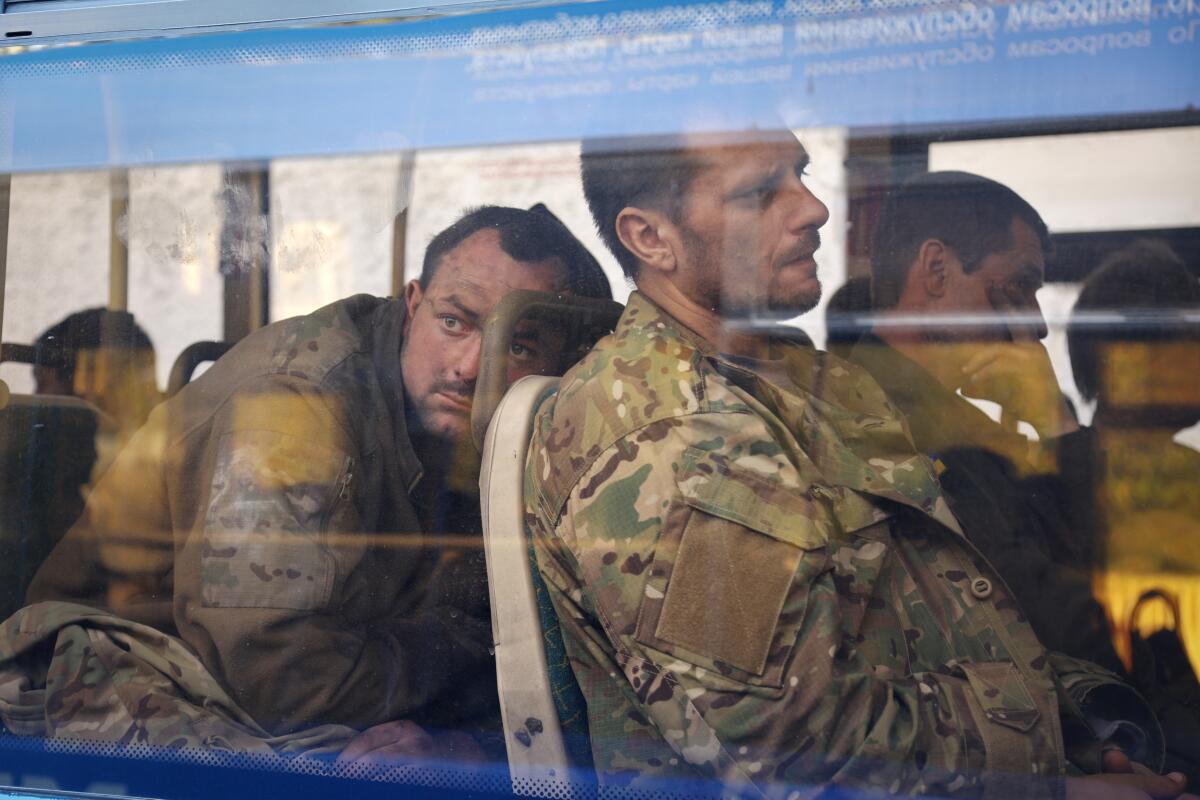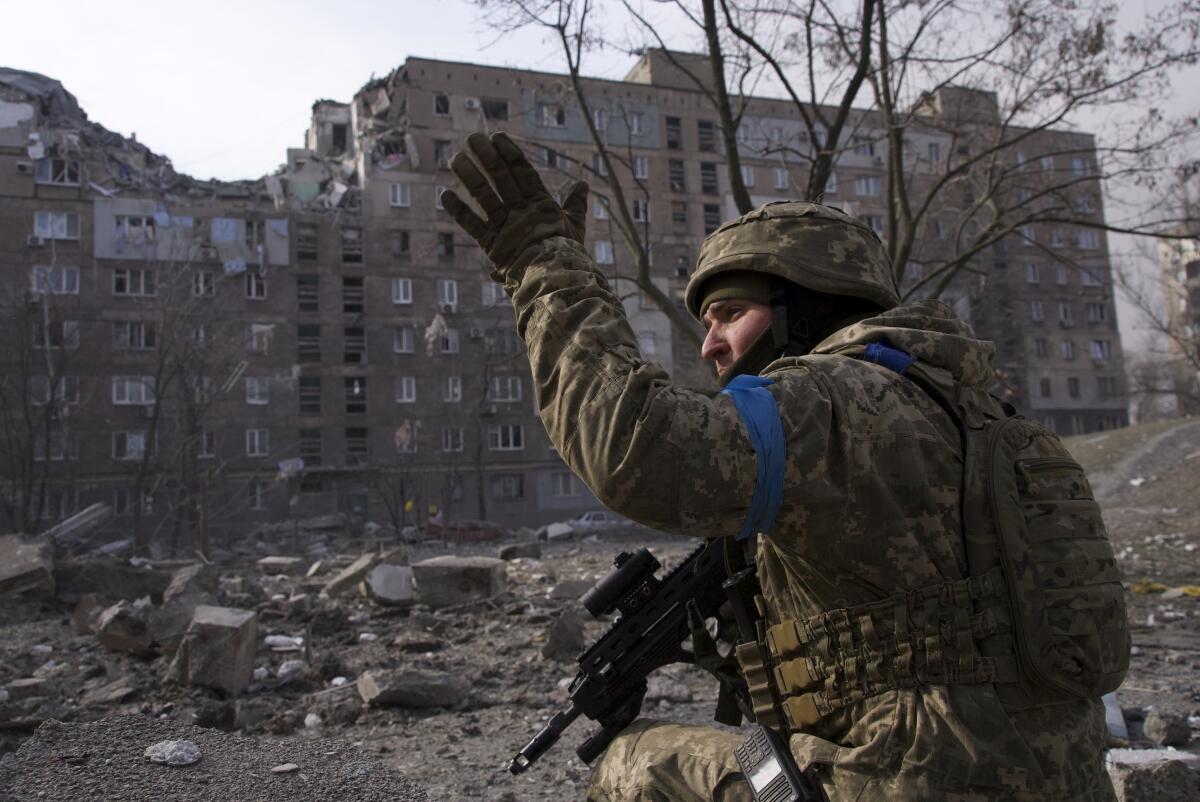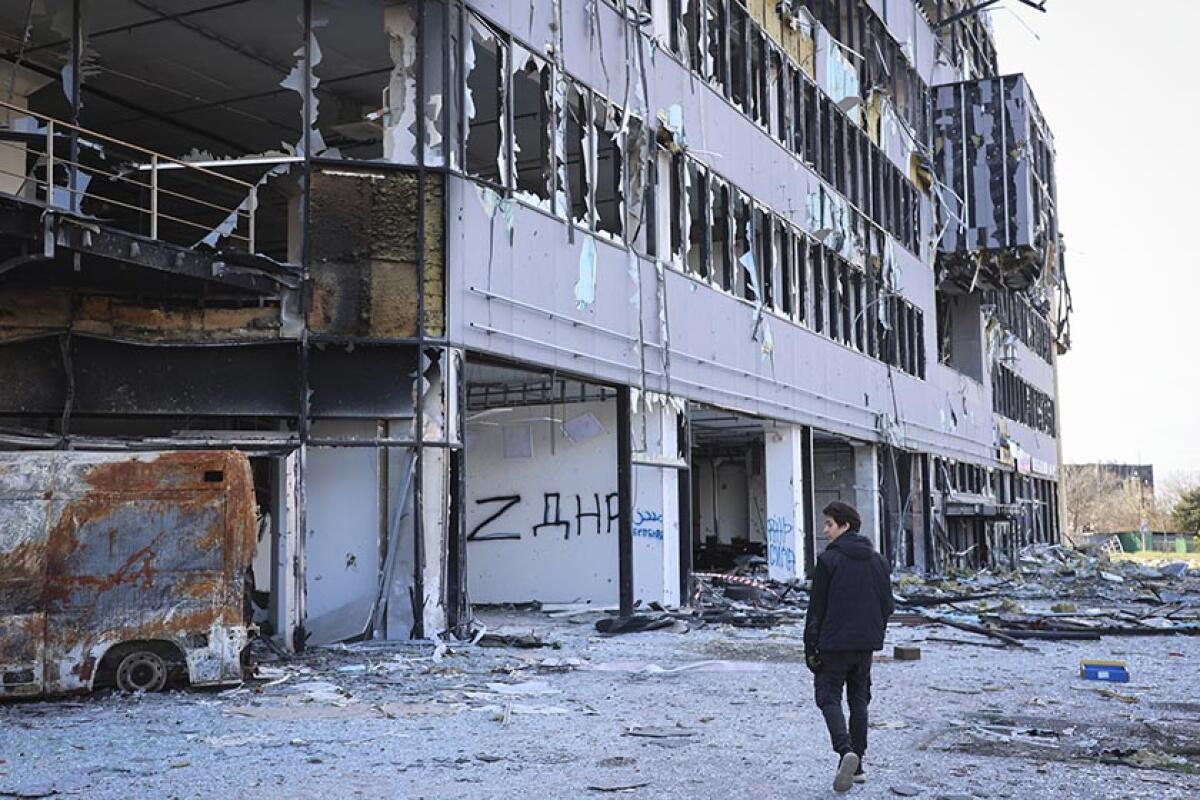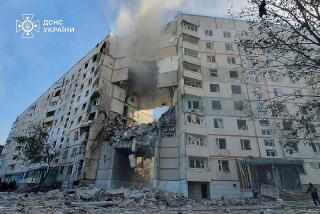Will the fall of Mariupol change the course of Ukraine war?

- Share via
WASHINGTON — Russian President Vladimir Putin declared his forces had conquered the strategic Ukrainian port of Mariupol a month ago. Only now, however, does that seem to be true.
Herculean resistance by a few hundred Ukrainian fighters, holed up in the city’s sprawling steel factory, staved off Russian troops and artillery for weeks. Many died or were wounded. Civilians also cowered for survival in a labyrinth of tunnels underneath the plant. Ukrainian commanders said they would never surrender.
But this week, after most civilians were rescued by the International Committee of the Red Cross, the battle ended. About 260 Ukrainian soldiers became prisoners and were transported to Russian-controlled territory. Ukraine’s loss of Mariupol — the first major victory in Russia’s nearly three-month war — is symbolically and operationally painful.
Why did Russia fight so hard to take Mariupol?
Mariupol sits in southeastern Ukraine, on the Sea of Azov. Across the blue waters, a little more than 30 miles, lies Russia.
It has been a bustling port for importing goods and exporting grain and other agricultural products. It is not as storied as Odesa, roughly 325 miles to the west, but is an important cog in the Ukrainian economic machine.

Capturing Mariupol gives Russia a land bridge between Ukrainian territories that it occupied illegally several years ago. From Donetsk, an area in the southeastern Donbas region that Russia-backed separatists seized in 2014, to the Crimean peninsula, occupied and annexed by Russia that same year, controlling Mariupol connects the two and gives Russia freer passage across the south and east.
Is there additional symbolic or political significance for Russia’s leaders?
Putin has eagerly sought a victory in this war, after his early calculations seemed to have misfired. Far from toppling Ukrainian President Volodymyr Zelensky within days of the Feb. 24 invasion and installing a puppet government, Putin, facing fierce resistance, had to retreat from the capital, Kyiv. And Ukraine’s second-largest city, Kharkiv, which at one time seemed to be on the brink of falling to Russian forces, has fought back and pushed the enemy farther north.
With Mariupol, Putin can finally point to a significant achievement in a conflict that has defied expectations on both sides, claimed thousands of lives and spawned around 6 million refugees.
And, with Mariupol settled — presumably — Russia can redeploy its combat forces from the port, once about 20,000-strong, according to U.S. military intelligence, to the tough battles unfolding elsewhere in the Donbas, Ukraine’s eastern industrial heartland. The strategy of Russian forces is to encircle Ukrainian soldiers in what looks to be a war of attrition in the east.
And Ukraine’s interest?
The besieged port also became a symbol of resistance and survival for Ukrainians.
The parents and children, and their pets, who sheltered in the steelworks tunnels were shown in dire, dark conditions, with little food or water, in pictures taken by soldiers and posted on social media. Some who escaped spoke of not seeing the sun for two months. Many Ukrainians considered them heroes for their determination and persistence.
What will happen to the Ukrainian soldiers now in Russian hands?
Russia does not have a stellar record in its treatment of prisoners of war. Moreover, some Ukrainian survivors have reported their shock at the hatred Russian soldiers seemed to have for them, apparently buying into Putin’s propaganda about Ukraine being awash with Nazis.
Zelensky said he wanted the soldiers brought home as soon as possible. Several prisoner swaps have taken place in this war. Such a deal was apparently worked out in Mariupol, but the future of those soldiers in Russian hands is uncertain.
“To bring the boys home, the work continues, and this work needs delicacy. And time,” Zelensky said.

Amnesty International, the human rights organization, also expressed alarm over the soldiers’ fate.
“Amnesty International has documented summary killings of captives by Russia-backed separatist forces in eastern Ukraine, as well as the extrajudicial executions of Ukrainian civilians by Russian forces in recent weeks,” the organization said in a statement. “The Azov Battalion soldiers who surrendered today must not meet the same fate.”
Can Mariupol be rebuilt?
Not quickly — even if the war were to end soon. Relentless Russian bombing has obliterated apartment buildings, hospitals and schools, and enormous swaths of infrastructure, in what was once a bustling, cosmopolitan city of nearly half a million people. Mariupol looks like a massive wildfire marched through, uncontrolled. Officials say it is too soon to contemplate recovery and rebuilding: The priority is still survival.
More to Read
Sign up for Essential California
The most important California stories and recommendations in your inbox every morning.
You may occasionally receive promotional content from the Los Angeles Times.














